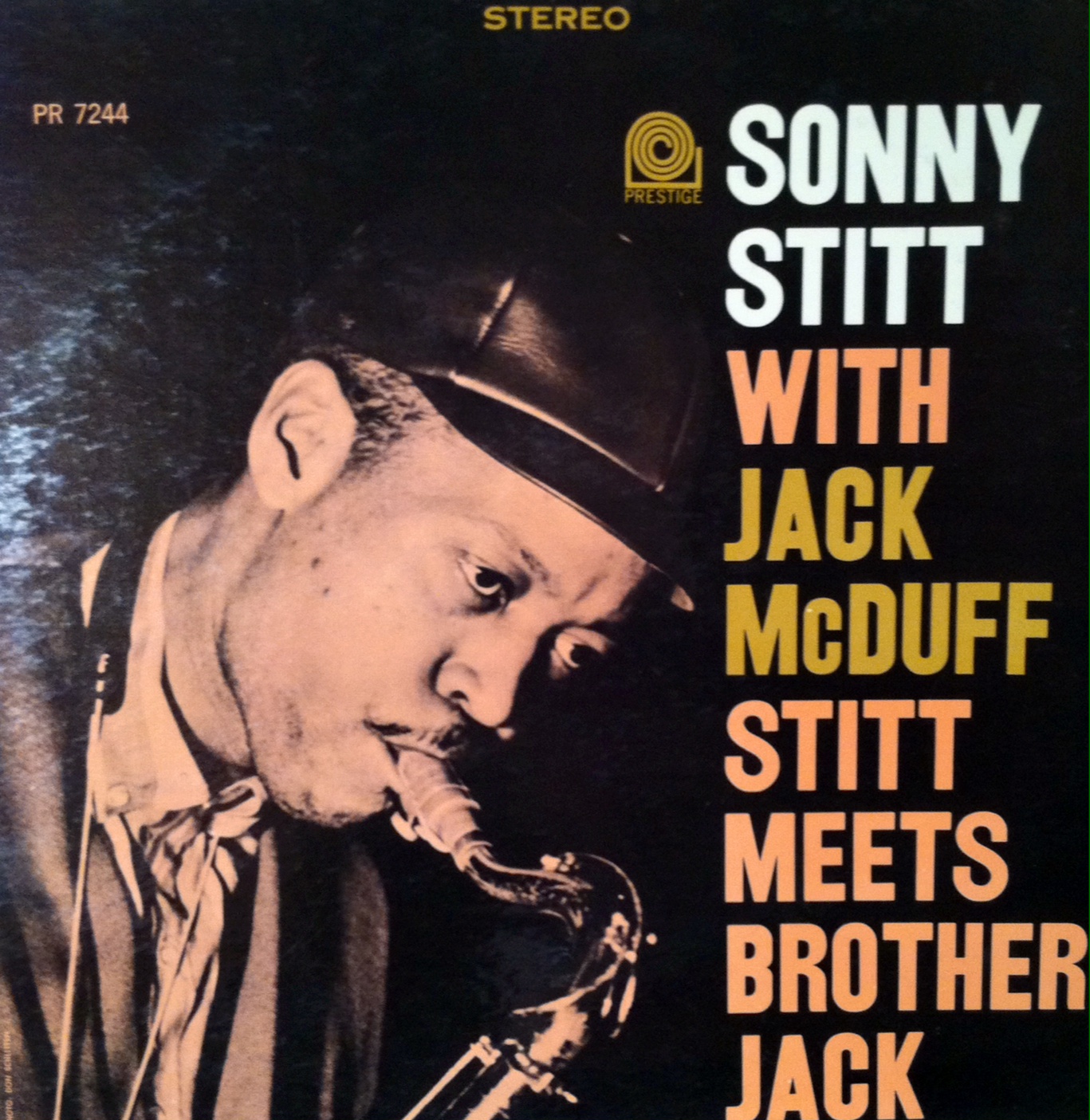A Very Boss Tenor

The previous post focused on Don Schlitten's cover for Sonny Stitt's album Stitt Meets Brother Jack (Prestige 7244). This week we take a look at Schlitten's work on a cover that came shortly after, this time for Gene Ammons' Bad! Bossa Nova (7257). The designer uses an abstract-expressionist vocabulary in terms of the splotchy mark-making; we see something akin to splattered black ink occupying the lower two thirds of the cover. However, the album was designed in 1962, when Abstract Expressionism was well-established; the upstart of the art world at this time was Pop Art and Andy Warhol's new soup can paintings. Looking at the album in this light, with its conspicuous cropping and contrasting, bright yellow background, the image reads as more pop than avant-garde. In the end, it is a gorgeous cover and the wonderful music (with Kenny Burrell on guitar and Hank Jones on piano) matches the image.
The Boss and Sonny
At the Baltimore Kissa Society's Listening Party 09, we were fortunate enough to hear Blues Up and Down, from the album Boss Tenors–a collaboration between Gene Ammons and Sonny Stitt. Both Ammons, a.k.a. The Boss, and Stitt were incredible tenor saxophone players, and both belonged to the same school of playing as the legendary Charlie Parker. Over the years, Ammons would have an easier time establishing his own style and stepping out of Parker's shadow.
Ammons knew a great sound when he heard it, and he even led his own group that included a still-young Miles Davis in 1957 (the same year Davis released his first Columbia record, 'Round About Midnight.) Other greats such as Dexter Gordon, John Coltrane, Kenny Burrell, and Donald Byrd all played in Ammons' different bands. But Ammons was always especially close with Sonny Stitt, and the two influenced each other in more ways than their playing. Both men ended up serving jail terms for narcotics possession. Bad! Bossa Nova is the last album Ammons recorded before serving a seven-year jail sentence, from 1962-69 (it was his second stint, and it was rumored that he was framed). Upon release, he was able to continue his contract with Prestige, releasing the triumphant The Boss is Back! to much critical praise. Ammons continued to record great sessions until 1974, when he released Goodbye shortly before passing away from cancer.




